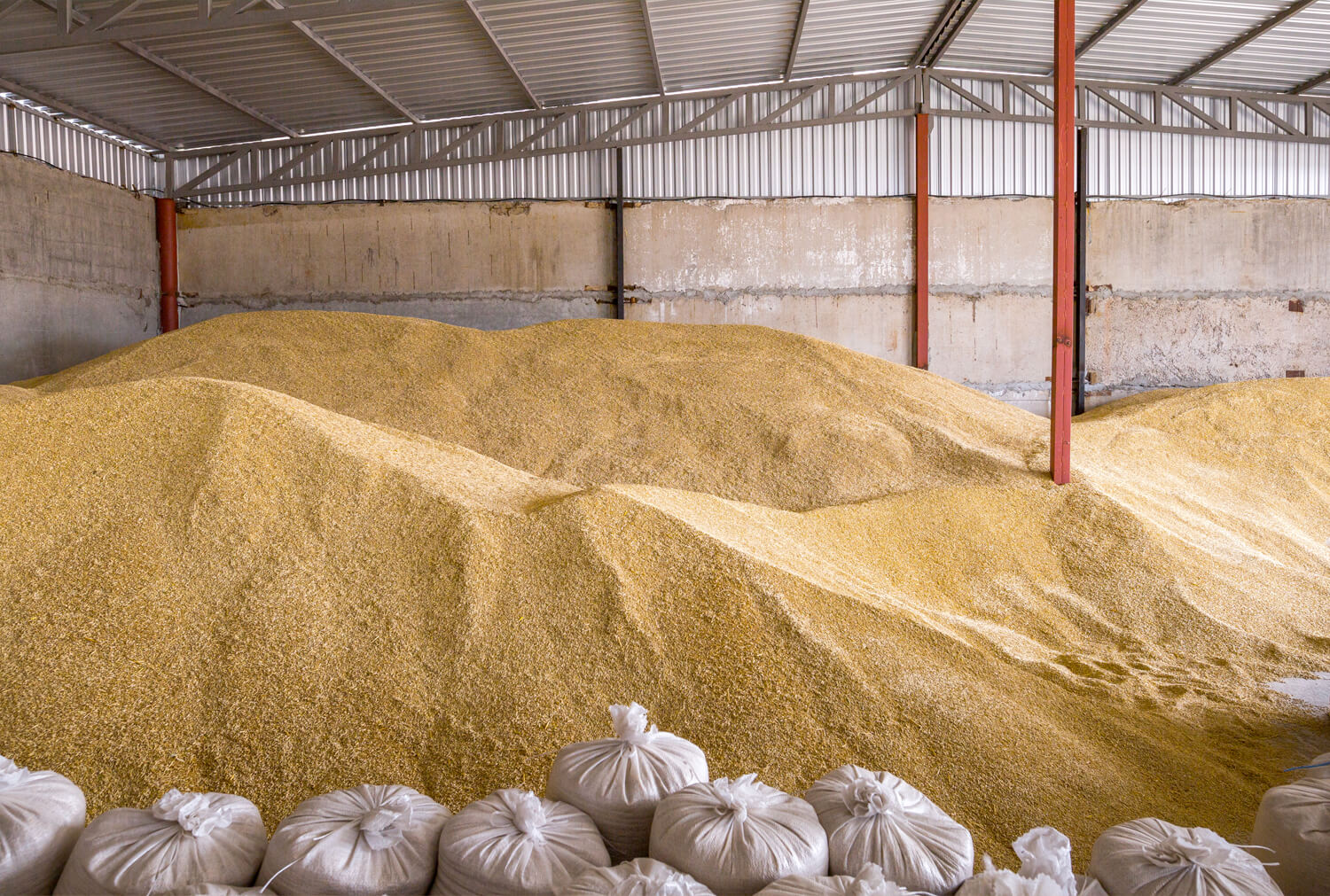Central Grain Storage –
A Compelling Case

Our representative for East Anglia, Richard Cook, explores the return on investment of central grain storage.
Did you find Clarkson’s Farm hilarious and entertaining? It’s the serialisation of Jeremy Clarkson’s misadventures into agriculture on his Gloucestershire farm. It is equally, as is so often the case with satire, an exposure of the more serious trials & tribulations of UK agriculture.
In series one, Jeremy’s farmhand, Kaleb Cooper, berates him for his lack of grain storage facilities. Jeremy is forced to sell his barley directly off the field and at the mercy of the market. His situation is compounded by his miscalculation of his logistical needs – 28 lorries short of his loading requirements!
This got me thinking – have Jeremy and Cheerful Charlie considered the merits of central grain storage?
Of course, this path is not suited to everyone. Over the years I have found the debate around central storage to be an emotive subject that tends to divide the crowd. Often the pros & cons are both complex and multi-faceted and might be determined by any one or more of the following factors: –
- Existing on-farm storage and its longevity
- Proximity to end-user
- Crop value, quality and type
- Costs – running costs, labour, logistics, devaluation & servicing
- Access to capital to build on-farm storage facilities at typically £200 -250/t
- Opportunity cost of deploying grain sheds for other uses e.g., external storage & residential development
Central grain storage means that as a farmer you can harvest at the right time to suit your crop, safe in the knowledge that it will be stored at its optimum condition. Crop can be harvested at higher moisture levels, up to 20%, yet with quality preserved, which may prove critical given the clear and obvious changes to our weather patterns.
Grain in the field is worth nothing. It only takes on value after it has been harvested and that value can be affected by the timing of harvest, harvest conditions, how it is managed in the store and how it is marketed at the point of sale.
As farms expand through contracting and/or joint venture operations and the volume of grain to be managed and marketed grows, the case for using the expertise of a cereal storage business operating modern grain storage with advanced cleaning drying and blending equipment is compelling.
Having access to central storage offers flexibility. Back in Gloucestershire, if Jeremy had access to such a facility it would have provided him with peace of mind. Knowing that he had access to the logistics and a safe haven for his grain, he would be comforted in the knowledge that it was stored in modern facilities, regularly monitored, and marketed at maximum value.
Here at Ashbridge Partners we can help you assess the financial implications of investing in central storage or your own. We can guide you through the funding options to reach the best outcome for you.
If this is something you are considering or pursuing, contact Richard Cook:
Richard Cook
07377 992 644
richard@ashbridgepartners.co.uk
